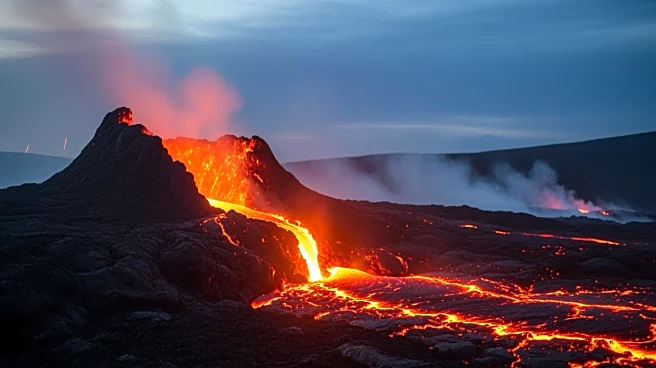Rapid Read • 7 min read
Recent research published in Frontiers in Marine Science highlights the vulnerability of shark teeth to ocean acidification, a consequence of increased atmospheric CO2 absorption. The study, led by Maximilian Baum from Heinrich Heine University Düsseldorf, reveals that the structural integrity of shark teeth, composed of highly mineralized phosphates, is compromised under acidic conditions. Laboratory simulations showed significant degradation, including surface damage and root corrosion, when teeth were exposed to projected future acidification levels. This vulnerability could affect sharks' hunting efficiency, impacting marine ecosystems and biodiversity.
AD
Sharks play a crucial role in maintaining marine ecosystem balance by controlling prey populations. The degradation of their teeth could reduce their predation efficiency, leading to potential ecological imbalances. This could indirectly affect fish stocks, impacting food security and economic activities reliant on marine resources. The study underscores the broader implications of climate change and ocean chemistry shifts, highlighting the need for CO2 emission mitigation and ocean pH monitoring to preserve marine biodiversity and ecosystem health.
The findings call for urgent action to mitigate CO2 emissions and monitor ocean pH levels to prevent further degradation of marine ecosystems. Conservation strategies and policy decisions informed by such research are critical to maintaining the functional role of apex predators like sharks. Continued research and monitoring are essential to understand and address the subtle yet significant impacts of ocean acidification on marine life.
The study exemplifies the potential of student-led research in advancing scientific understanding of global issues like ocean acidification. It highlights the interconnectedness of environmental changes and biological vulnerabilities, emphasizing the importance of curiosity-driven inquiry in scientific discovery and conservation efforts.
AD
More Stories You Might Enjoy











